Sonya McCarter magnificent as mother grieving for son murdered by police
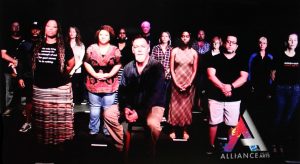 Last Thursday, the incomparable Sonya McCarter turned in a tearful, gut-wrenching performance in The Best Seats in Your House production of Keith A. Wallace’s For Black Women Who Experienced Genocide When The Police Murders of Their Sons Was Too Much. McCarter tapped unimaginable reserves of pain,
Last Thursday, the incomparable Sonya McCarter turned in a tearful, gut-wrenching performance in The Best Seats in Your House production of Keith A. Wallace’s For Black Women Who Experienced Genocide When The Police Murders of Their Sons Was Too Much. McCarter tapped unimaginable reserves of pain, 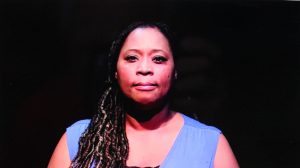 grief, indignation and rage and directed them like a geyser toward the unseen audience on the other side of the camera as she demanded of an unseen policeman or policewoman “Do not say he expired. You will say you murdered him. Do not say ‘your son.’ I know he was my son.
grief, indignation and rage and directed them like a geyser toward the unseen audience on the other side of the camera as she demanded of an unseen policeman or policewoman “Do not say he expired. You will say you murdered him. Do not say ‘your son.’ I know he was my son. 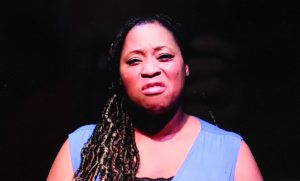 You will say his name. When I collapse, you do not pick me up. When I vomit, do not turn your head in disgust. When I ask if he suffered, you do not lie or tell me that he’s in a better place now. When I weep, let me. When I curse, let me. Do not police my language. I am grieving and I am his mother. “
You will say his name. When I collapse, you do not pick me up. When I vomit, do not turn your head in disgust. When I ask if he suffered, you do not lie or tell me that he’s in a better place now. When I weep, let me. When I curse, let me. Do not police my language. I am grieving and I am his mother. “
McCarter 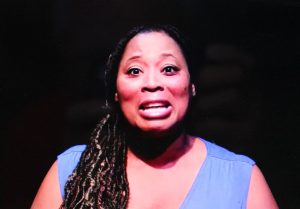 delivered a career-defining performance earlier this year in the role of Camae in Katori Hall’s The Mountaintop. But she blew the doors off that performance in For Black Women Who Experience Genocide When The Police Murders of their Sons Was Too Much. It’s a magnificent performance that bears replaying, particularly now, in the aftermath of yet another slaying of an unarmed black man by a white police
delivered a career-defining performance earlier this year in the role of Camae in Katori Hall’s The Mountaintop. But she blew the doors off that performance in For Black Women Who Experience Genocide When The Police Murders of their Sons Was Too Much. It’s a magnificent performance that bears replaying, particularly now, in the aftermath of yet another slaying of an unarmed black man by a white police 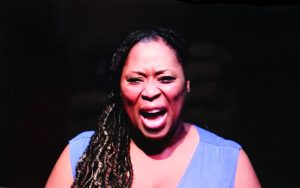 officer who did everything within his power to foment rather than diffuse a confrontation with a dad just trying to avoid arrest so that he could attend his daughter’s birthday party the following day.
officer who did everything within his power to foment rather than diffuse a confrontation with a dad just trying to avoid arrest so that he could attend his daughter’s birthday party the following day.
But sadly Sonya’s performance – and the real-life press conferences and interviews with grieving mothers, wives and daughters 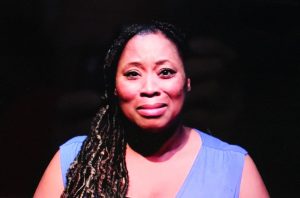 that play across our television screens each week (sometime more often) – belie the true physical toll exacted by the murders of black sons, husbands, partners and fathers.
that play across our television screens each week (sometime more often) – belie the true physical toll exacted by the murders of black sons, husbands, partners and fathers.
“The recent deaths of [Rayshard Brooks, George Floyd,] Ahmaud Arbery and Breonna Taylor are a brutal reminder that  no matter how vigilantly Black mothers try to protect their children, or other family members, it might not be enough to ensure their safety,” notes Cynthia G. Colen, Associate Professor of Sociology at Ohio State University. As a result, they live in a chronic state of hyperawareness that the smallest interaction with law enforcement or white people can trigger a sequence of events that can end with
no matter how vigilantly Black mothers try to protect their children, or other family members, it might not be enough to ensure their safety,” notes Cynthia G. Colen, Associate Professor of Sociology at Ohio State University. As a result, they live in a chronic state of hyperawareness that the smallest interaction with law enforcement or white people can trigger a sequence of events that can end with 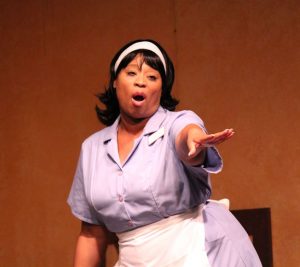 their loved ones lying dead in the middle of some street.
their loved ones lying dead in the middle of some street.
This hypervigilance and PTSD results in “weathering” – diminished health over time due to the cumulative effects of psychological stress compounded by feelings of helplessness. Because “Black and Hispanic mothers exist in a state of ‘high alert to the possibility that their child will encounter unfair treatment,’” writes A. Rochaun Meadows-Fernandez for Vox Magazine, “the potential consequences of 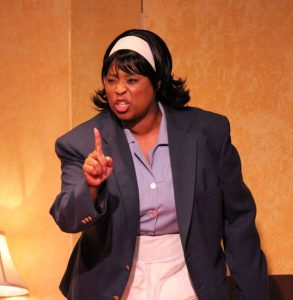 this stress are … slower blood pressure recovery, increases in inflammatory markers, and worse sleep patterns.” So is there any wonder that black women between the ages of 35 and 64 are 50 percent more likely than white women to have high blood pressure, 60 percent more likely to have diabetes and three times more likely to suffer kidney failure.
this stress are … slower blood pressure recovery, increases in inflammatory markers, and worse sleep patterns.” So is there any wonder that black women between the ages of 35 and 64 are 50 percent more likely than white women to have high blood pressure, 60 percent more likely to have diabetes and three times more likely to suffer kidney failure.
Expressing pain, grief, rage and indignation as McCarter does in For Black Women is the only antidote for even more egregious physical harm.
“The 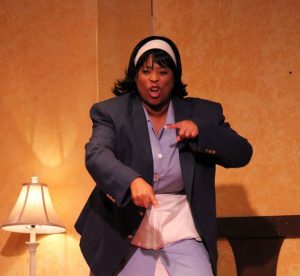 trauma narrative, as we call it in psychology, is a powerful technique designed to help survivors of trauma to make sense of their experiences,” says Amber Hewitt, a counseling psychologist with expertise in racial identity and coping. “Sharing your trauma story helps you to organize the memories related to the trauma, and it even helps lessen the painful emotions that go along with it,” she says.
trauma narrative, as we call it in psychology, is a powerful technique designed to help survivors of trauma to make sense of their experiences,” says Amber Hewitt, a counseling psychologist with expertise in racial identity and coping. “Sharing your trauma story helps you to organize the memories related to the trauma, and it even helps lessen the painful emotions that go along with it,” she says.
Vox’s Meadows-Fernandez chronicles in her article “The unbearable 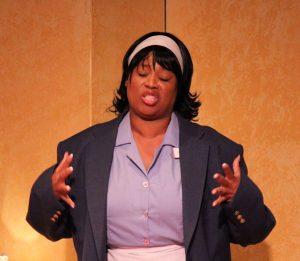 grief of Black mothers” how Mamie Till-Mobley (14-year-old Emmett Till’s mother), Sybrina Fulton (Treyvon Martin’s mother) and others have employed the trauma narrative achieve a modicum of healing while championing community change. Various strategies and support groups have evolved over the past several cycles of violence against unarmed black men to help mothers, wives, daughters and other survivors process their violation, loss and grief –
grief of Black mothers” how Mamie Till-Mobley (14-year-old Emmett Till’s mother), Sybrina Fulton (Treyvon Martin’s mother) and others have employed the trauma narrative achieve a modicum of healing while championing community change. Various strategies and support groups have evolved over the past several cycles of violence against unarmed black men to help mothers, wives, daughters and other survivors process their violation, loss and grief – 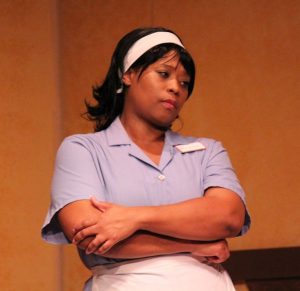 like Circle of Mothers (founded by Sybrina Fulton), Resonance Network (which recently organized an online grief or wailing circle that uses the knowledge of ancestral practices and wisdom as a blueprint for healing) and #FreeBlackmotherhood, a social movement that encourages black mothers to emphasize authentic emotions, both positive and negative.
like Circle of Mothers (founded by Sybrina Fulton), Resonance Network (which recently organized an online grief or wailing circle that uses the knowledge of ancestral practices and wisdom as a blueprint for healing) and #FreeBlackmotherhood, a social movement that encourages black mothers to emphasize authentic emotions, both positive and negative.
And herein resides the brilliance of Keith Wallace’s under-four-minute For Black Women Who Experienced Genocide When The Police Murders 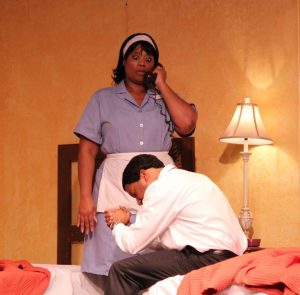 of Their Sons Was Too Much script. Wallace recognizes the crucial role that the expression of grief plays in dealing with the trauma of losing a child or other family member to police, gun or other violence. And that’s precisely why McCarter’s character chastises the policeman or policewoman who comes to her home to convey the news of her son’s murder.
of Their Sons Was Too Much script. Wallace recognizes the crucial role that the expression of grief plays in dealing with the trauma of losing a child or other family member to police, gun or other violence. And that’s precisely why McCarter’s character chastises the policeman or policewoman who comes to her home to convey the news of her son’s murder.
“When I collapse, you do not pick me up. When I vomit, do not turn your head in disgust. When I ask if he suffered, you do not lie or tell me that he’s in a better place now. When I weep, 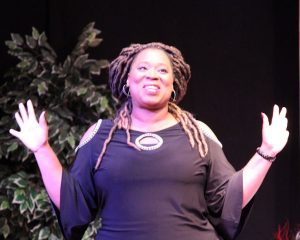 let me. When I curse, let me. Do not police my language. I am grieving and I am his mother. “
let me. When I curse, let me. Do not police my language. I am grieving and I am his mother. “
She has to grieve.
It’s the only way to process her loss.
June 16, 2020.














 Tom Hall is both an amateur artist and aspiring novelist who writes art quest thrillers. He is in the final stages of completing his debut novel titled "Art Detective," a story that fictionalizes the discovery of the fabled billion-dollar Impressionist collection of Parisian art dealer Josse Bernheim-Jeune, thought by many to have perished during World War II when the collection's hiding place, Castle de Rastignac in southern France, was destroyed by the Wehrmacht in reprisal for attacks made by members of the Resistance operating in the area. A former tax attorney, Tom holds a bachelor's degree as well as both a juris doctorate and masters of laws in taxation from the University of Florida. Tom lives in Estero, Florida with his fiancee, Connie, and their four cats.
Tom Hall is both an amateur artist and aspiring novelist who writes art quest thrillers. He is in the final stages of completing his debut novel titled "Art Detective," a story that fictionalizes the discovery of the fabled billion-dollar Impressionist collection of Parisian art dealer Josse Bernheim-Jeune, thought by many to have perished during World War II when the collection's hiding place, Castle de Rastignac in southern France, was destroyed by the Wehrmacht in reprisal for attacks made by members of the Resistance operating in the area. A former tax attorney, Tom holds a bachelor's degree as well as both a juris doctorate and masters of laws in taxation from the University of Florida. Tom lives in Estero, Florida with his fiancee, Connie, and their four cats.